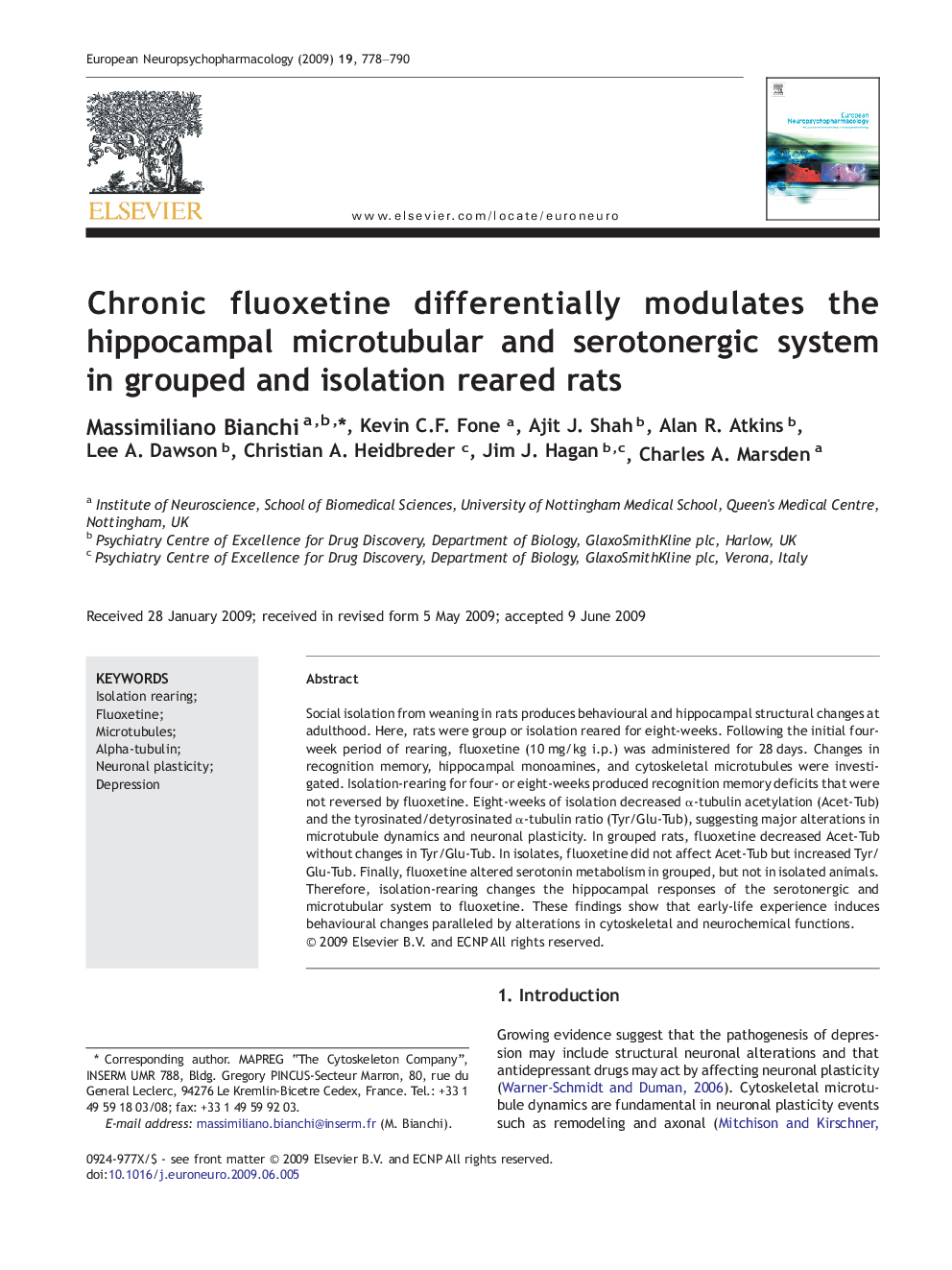| Article ID | Journal | Published Year | Pages | File Type |
|---|---|---|---|---|
| 318997 | European Neuropsychopharmacology | 2009 | 13 Pages |
Social isolation from weaning in rats produces behavioural and hippocampal structural changes at adulthood. Here, rats were group or isolation reared for eight-weeks. Following the initial four-week period of rearing, fluoxetine (10 mg/kg i.p.) was administered for 28 days. Changes in recognition memory, hippocampal monoamines, and cytoskeletal microtubules were investigated. Isolation-rearing for four- or eight-weeks produced recognition memory deficits that were not reversed by fluoxetine. Eight-weeks of isolation decreased α-tubulin acetylation (Acet-Tub) and the tyrosinated/detyrosinated α-tubulin ratio (Tyr/Glu-Tub), suggesting major alterations in microtubule dynamics and neuronal plasticity. In grouped rats, fluoxetine decreased Acet-Tub without changes in Tyr/Glu-Tub. In isolates, fluoxetine did not affect Acet-Tub but increased Tyr/Glu-Tub. Finally, fluoxetine altered serotonin metabolism in grouped, but not in isolated animals. Therefore, isolation-rearing changes the hippocampal responses of the serotonergic and microtubular system to fluoxetine. These findings show that early-life experience induces behavioural changes paralleled by alterations in cytoskeletal and neurochemical functions.
